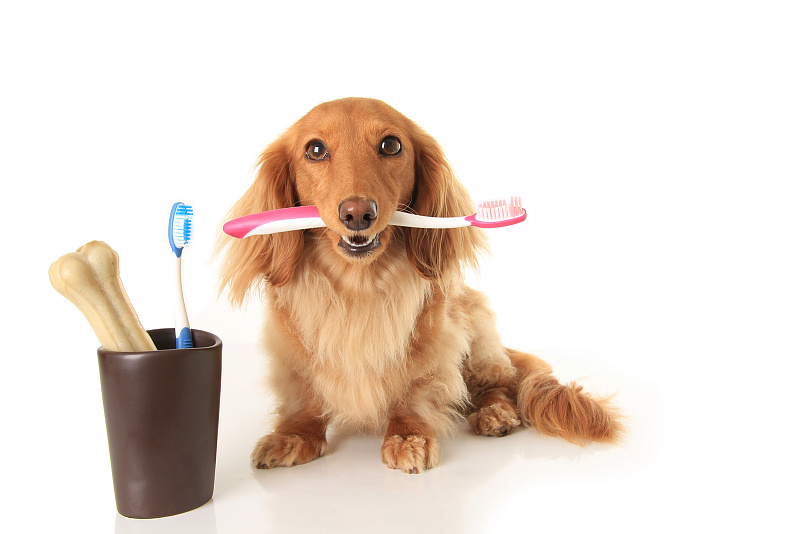Dental prosthetics for animals

If implantation is important for aesthetics, then dental prosthetics in dogs and cats is a necessary procedure that improves the quality of life and health of pets. In the Zoolux veterinary clinic, the most experienced veterinarians-dentists in Kiev are receiving, who not only perform various therapeutic and surgical procedures (cleaning, removing stones, treating diseases, extracting a tooth), but also provide prosthetics services. We have high-quality materials at our disposal, from which the specialist makes dentures of any complexity for dogs and cats, the price of the procedure remains affordable in Kyiv and is indicated in the price list of the clinic. And the availability of modern medical and diagnostic equipment can minimize all risks during surgery.
Dentures for dogs: features
Since the structure of the jaws, teeth, their functions in different types of animals differ significantly, doctors use different methods of prosthetics. As a percentage, it is more often necessary to insert teeth in a dog and much less often in a cat, for two main reasons:
- abrasion (abrasion) - constant exposure to solid particles and materials leads to gradual grinding of the crown;
- a large load - the desire to constantly gnaw bones, sticks, bars of cages.
In some cases, dental prosthetics are required for service breed dogs that have broken canines while performing work tasks. It is important to understand that the prosthesis can only be installed on a healthy root - this way it will retain its functional load. Contraindications are: allergy to materials and preparations, diseases of the cardiovascular system and lungs.
Dental prosthetics for cats
Since the cat is an obligate (absolute) predator and immediately swallows food, it has a minimal load on the dental apparatus. False teeth for cats are required much less often, the procedure itself takes less time and effort. Contraindications to it are:
- chronic diseases;
- autoimmune disorders;
- blood diseases;
- allergic reactions to anesthetic drugs.
In addition, before installing prostheses, animals need to cure diseases of the oral cavity.
Stages of prosthetic surgery in animals
First of all, the doctor assesses the condition of the oral cavity as a whole and eliminates the symptoms of detected diseases. The preparatory stage may include: complete sanitation, filling, turning, mechanical cleaning. Then the owner receives a referral for tests that the anesthesiologist needs to select the optimal anesthesia. The manipulation itself can be delayed (with tissue restoration) or immediate (immediately after removal). Based on the standard classification, false teeth for dogs are divided into:
- fixing methods - can be both removable and non-removable;
- time of use - temporary (for a certain period) or permanent;
- manufacturing methods - cast, seam, stamped, seamless;
- materials - non-metal (polymer, porcelain), metal.
After the operation is completed, the owner is informed about the set of procedures for caring for the pet's mouth. It is necessary to exclude possible rejection and includes:
- visits to the attending physician during the first few days;
- compliance with the recommended diet;
- exclusion of serious loads;
- regular brushing of teeth.
It is necessary to come with a pet for a preventive examination during the period indicated by the doctor, most often it is three months, six months, a year. Dial the clinic number indicated on the website to find out the cost of dental prosthetics for cats or dogs in the complex and make an appointment.


